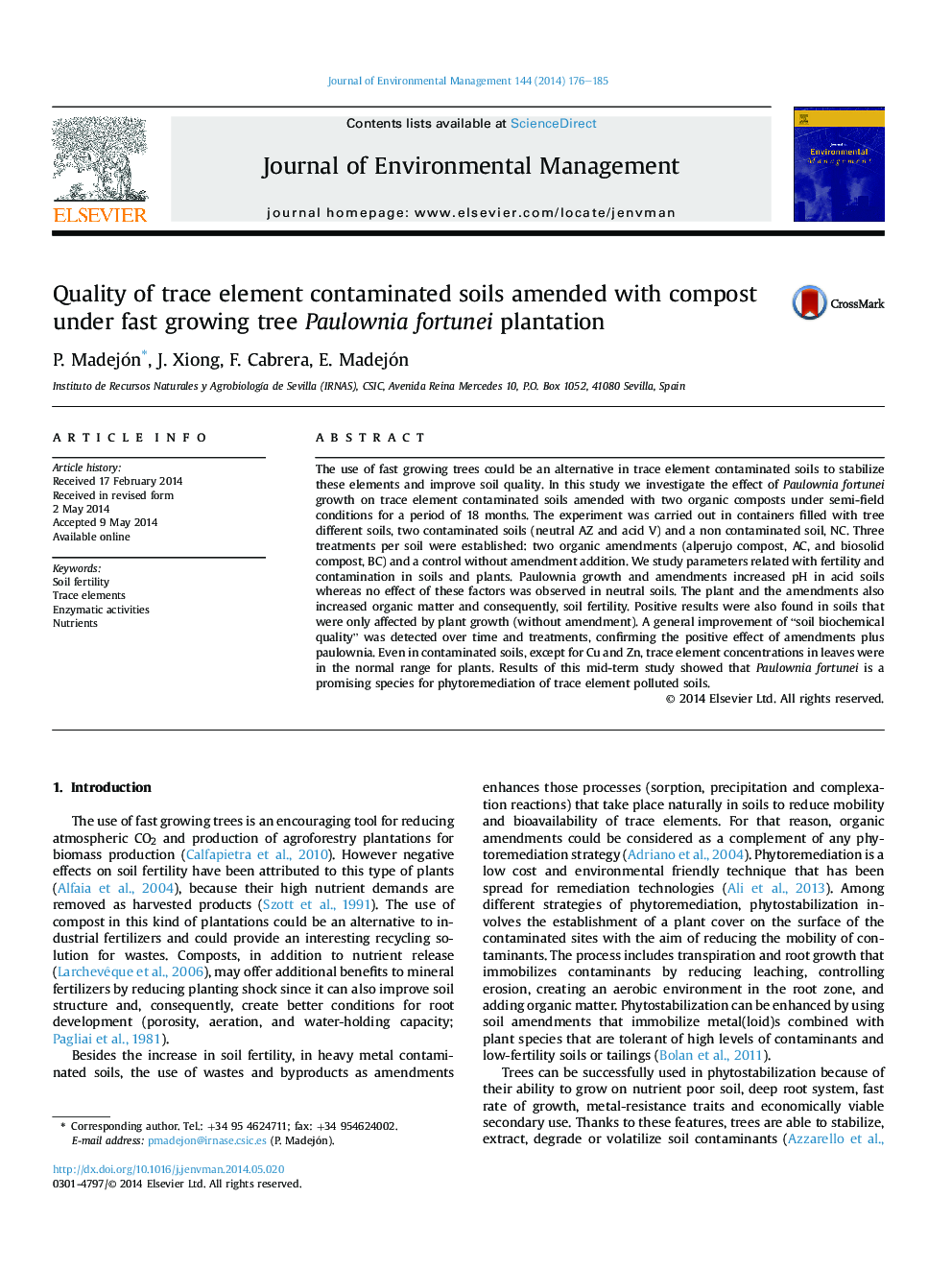| Article ID | Journal | Published Year | Pages | File Type |
|---|---|---|---|---|
| 7483669 | Journal of Environmental Management | 2014 | 10 Pages |
Abstract
The use of fast growing trees could be an alternative in trace element contaminated soils to stabilize these elements and improve soil quality. In this study we investigate the effect of Paulownia fortunei growth on trace element contaminated soils amended with two organic composts under semi-field conditions for a period of 18 months. The experiment was carried out in containers filled with tree different soils, two contaminated soils (neutral AZ and acid V) and a non contaminated soil, NC. Three treatments per soil were established: two organic amendments (alperujo compost, AC, and biosolid compost, BC) and a control without amendment addition. We study parameters related with fertility and contamination in soils and plants. Paulownia growth and amendments increased pH in acid soils whereas no effect of these factors was observed in neutral soils. The plant and the amendments also increased organic matter and consequently, soil fertility. Positive results were also found in soils that were only affected by plant growth (without amendment). A general improvement of “soil biochemical quality” was detected over time and treatments, confirming the positive effect of amendments plus paulownia. Even in contaminated soils, except for Cu and Zn, trace element concentrations in leaves were in the normal range for plants. Results of this mid-term study showed that Paulownia fortunei is a promising species for phytoremediation of trace element polluted soils.
Related Topics
Physical Sciences and Engineering
Energy
Renewable Energy, Sustainability and the Environment
Authors
P. Madejón, J. Xiong, F. Cabrera, E. Madejón,
